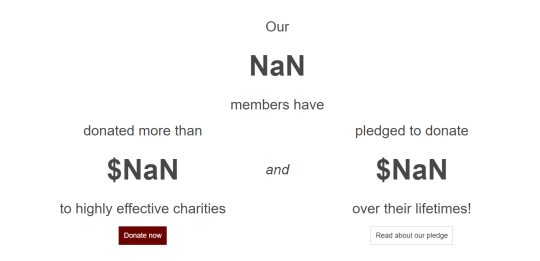#effective altruism
I’ve been doing a lot reading this summer and I thought it would be interesting to post the things I find thought-provoking.
Against Charity by Mathew Snow
Rather than creating an individualized “culture of giving,” we should be challenging capitalism’s institutionalized taking.
The core problem is the bourgeois moral philosophy that the movement rests upon. Effective Altruists abstract from — and thereby exonerate — the social dynamics constitutive of capitalism. The result is a simultaneously flawed moral and structural analysis that aspires to fix the world’s most pressing problems on capital’s terms.
Rather than asking how individual consumers can guarantee the basic sustenance of millions of people, we should be questioning an economic system that only halts misery and starvation if it is profitable. Rather than solely creating an individualized “culture of giving,” we should be challenging capitalism’s institutionalized taking.
Having been reading more and more socialist/radical left commentary, I feel like most criticism can be distilled down into, “the system is wrong, so why are we focusing on making this thing inside the system better?” This is particularly evident in the criticism of animal welfare by animal rights advocates, i.e. why are you pushing for better treatment of animals before they’re killed when they shouldn’t be killed in the first place?
Lessons in White Fragility: When Vegan Abolitionists Appropriate Intersectionality by Dr. C. Michele Martindill
White Fragility is a state in which even a minimum amount of racial stress becomes intolerable, triggering a range of defensive moves.
They spout clichés such as “all lives matter” or “just go vegan” or “veganism is not about race” or “intersectionality shows the interconnectedness of all oppressions.” When anyone in the animal rights movement claims they are practicing intersectional veganism, defining it merely as wanting justice for all and being against all exploitation and oppression, they are operating under a misguided act of cultural appropriation. They are also working to insure that an upper class white cis gendered ableist man dominated ideology remains at the center of the vegan abolitionist animal rights movement. Intersectionality or pro-intersectionality is not a let’s-have-a-group-hug approach to social justice, nor is it simply a path to growing a revolution—increasing movement membership–that will end all oppressive social systems.
Intersectionality has become a buzzword these days, without acknowledging Patricia Hill Collins or Kimberle Crenshaw or that the term was originally used to describe how Black women experience multiple systems of oppression. This was important for me to read because before I knew the history, I had thought that intersectionality was simply the acknowledgment that multiple systems of oppression can affect a group of people and how oppressions are interconnected.
This Is What I Mean When I Say “White Feminism” by Cate Young
I’m talking about the feminism that disregards the fact that whiteness is a privilege that is not afforded to all women.
Every single time women of colour talk about “white feminism” or “white feminists” within the context of discussions about the way that the mainstream feminist movement privileges whiteness, we deal with an onslaught of defensive white women insisting that they personally are not like that, and would you please say “some white women” and not make generalizations?
Now, I understand the impulse to get defensive. It can be very off-putting to feel attacked for a transgression that you know yourself not to be guilty of. But in the context of social justice and movement building, if you’re feeling attacked, it probably means you’re having your privilege challenged, not that you are a bad person. As I always say, “If it doesn’t apply to you, then it’s not about you. If it’s not about you, then don’t take it personally.” Being a good ally means recognizing that sometimes your input is not needed or wanted, and that it’s incredibly inappropriate to demand that a marginalized group, (in this case, WoC within the feminist movement) restructure a conversation that is happening to serve their needs, in a way that is more “comfortable” for the very people they are mobilizing against. That is the very definition of flexing one’s privilege.
I think a lot of this can also be applied to privilege in general, i.e. when you call out someone’s privilege, they get defensive and insist that they personally don’t want or act on their privilege. It reminds me of a sermon that John Metta gave last month – I, Racist. He spoke about how he doesn’t talk about race with white people because they’re unable to divorce their participation in a racist system from an accusation that they themselves are racist. “Without being able to make that differentiation, White people in general decide to vigorously defend their own personal non-racism, or point out that it doesn’t exist because they don’t see it.”
New EA cause area: Preventing EA causes from receiving NaN donations, helping NaN people, leading to a total of NaN people being alive on Earth, ultimately leading to the lightcone being tiled by NaNs, by fixing the GWWC website.

If there’s even the slightest chance that eating someone’s remains lets you absorb their powers then it’s morally incumbent on every effective altruist to eat the remains of famous philanthropists when they die
I know this is a shitpost, but I’m going to treat it seriously because the rebuttal is the same as the rebuttal to a lot of esoteric EA stuff: reputation matters. Spending it on really weird stuff with a low payoff can be a net negative if it makes normies find you so weird they decline to engage in deals with you they otherwise would’ve and this lack of opportunity makes you less instrumentally effective.
So the highly-effective altruist’s post-memorial-service luncheon is secretly cannibalistic, got it. Do you think the executors of the will inform anyone other than the cook?
